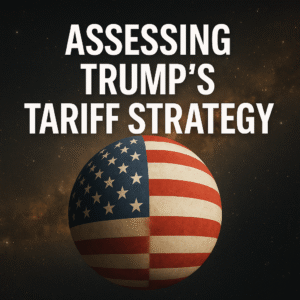?Trump Lifts Sanctions on Syria at Request of MBS and Erdo?an – But At What Cost?
14 May 2025
In a dramatic and unexpected move, U.S. President Donald Trump announced the immediate lifting of all U.S. sanctions on Syria, citing direct requests from Saudi Crown Prince Mohammed bin Salman (MBS) and Turkish President Recep Tayyip Erdo?an. The announcement was made during Trump’s Middle East tour, and marks a major departure from decades of U.S. policy towards Syria, with implications that ripple far beyond the country’s borders.
President Trump declared that “Syria has endured enough disasters, wars, and killing,” and confirmed that the new Syrian government led by President Ahmed al-Sharaa would no longer be subject to economic penalties. The decision, welcomed publicly by both Riyadh and Ankara, appears on the surface to signal a coordinated effort by regional powers to bring Syria back into the economic fold, particularly as reconstruction needs mount and infrastructure remains shattered by years of war. Erdo?an had already been lobbying for the lifting of sanctions, positioning himself as a key regional stabiliser and benefactor of the new Syrian regime.
Yet the lifting of sanctions is not being universally celebrated. While it promises to unfreeze billions of dollars in trade, aid, and infrastructure investment, it also raises uncomfortable questions about the price Syria will ultimately pay for Washington’s sudden generosity. The United States has an extensive and deeply compromised record of involvement in the region — from supporting coups and arming militias to facilitating invasions and prolonging instability — often under the guise of peace, reform, or democracy. In this context, few believe the sanctions relief comes without preconditions.
During the same announcement, Trump revealed that he had “urged” President al-Sharaa to join the Abraham Accords — the U.S.-brokered normalization framework with Israel. Such a request, coming at the very moment of Syria’s re-emergence onto the regional stage, is telling. It suggests that normalization with the Zionist entity may be the real condition tied to sanctions relief. While cloaked in the language of peace, the Accords have been widely criticized across the Muslim world as a capitulation to Israeli interests and a betrayal of Palestine. For Syria — historically a staunch opponent of Israel and home to a population deeply sympathetic to the Palestinian cause — any steps toward normalization could spark fierce domestic opposition and delegitimize the current government.
What remains clear is that the removal of sanctions has not come from any real reassessment of American wrongdoing in the region. Instead, it appears motivated by strategic calculations involving Israel, energy routes, and broader regional alignments. That MBS and Erdo?an acted as intermediaries only highlights the increasingly transactional nature of regional diplomacy — one that places state-to-state deals above public sentiment and Islamic unity.
The long-term costs of this arrangement will unfold over time. While Syria may temporarily benefit from economic reopening, the political and ideological compromises it may be forced to make — including possible security cooperation with Israel or the hosting of U.S.-aligned infrastructure — are unlikely to reflect the will of its people or the broader interest of the Muslim Ummah. Rather, it risks further embedding Syria within a U.S.-designed regional order that has consistently undermined Muslim sovereignty, enabled Zionist expansion, and left devastation in its wake.
In short, the lifting of sanctions may signal a new chapter for Syria — but whether it is one of true independence or deeper subjugation remains to be seen.


